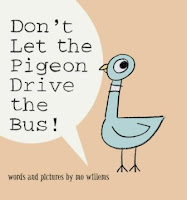It’s one thing to be unpublishable; it’s another to be commercially unpublishable.
Unpublishable means you can’t write. The work is drivel and probably deserves a place in the dustbin.
Commercially unpublishable means you can write, your work is really good and probably deserves a place in the dustbin.
Commercially unpublishable is far more kind and perhaps that’s why it’s being tossed around so much. It came up at least twice at the 2011 Rutgers One on One, and I’d heard it used several times before that.
What Commercially Unpublishable Means in Children’s Literature
Commercially unpublishable means that there’s no demand in the market for it. This doesn’t mean the piece isn’t good; it doesn’t even mean the intended audience wouldn’t love. It’s just that agents or editors don’t see a place fore it in the market. Take this example:
A picture book is written for children 5-8 years old. The intended audience will love it, says the editor or agent, but the picture book market for 5-8 year olds is dead because parents believe children that age should be reading chapter books so they can start getting ready for college.
Five or ten years ago, that manuscript might have been publishable. It’s well-written, has a great story arc and follows certain picture book precepts. It might even be publishable in another 5 years, if the market changes. But right now, it’s commercially unpublishable.
Consider other "dead" children’s markets:
Young Adult: vampires (market is glutted)
Middle Grade: historical fiction (sales down)
Picture books: Halloween (market is glutted), rhyming books
At least that’s what I’ve been told by various editors. They simply aren’t looking for them, though they always add the caveat: “Of course, there’s always room in the market if it’s well done.”
Which is the point Jon Sciezska, Harold Underdown and others made at Rutgers : it’s only commercially unpublishable until it’s published and someone buys it. Sciezska struggled to publish The True Story of the 3 Little Pigs, but it turned out it was commercial after all. Mo Willems struggled to see Don’t Let the Pigeon Drive the Bus in print and then it took off, launched a series, and spawned a terrific career.
The market may not have known it, but it was commercially publishable after all.
Summary: Commercially unpublishable is frustrating but not as bad as unpublishable. At least it means you can write, but the market has no idea what to do with you.
Or so I've been told.
Good luck!

